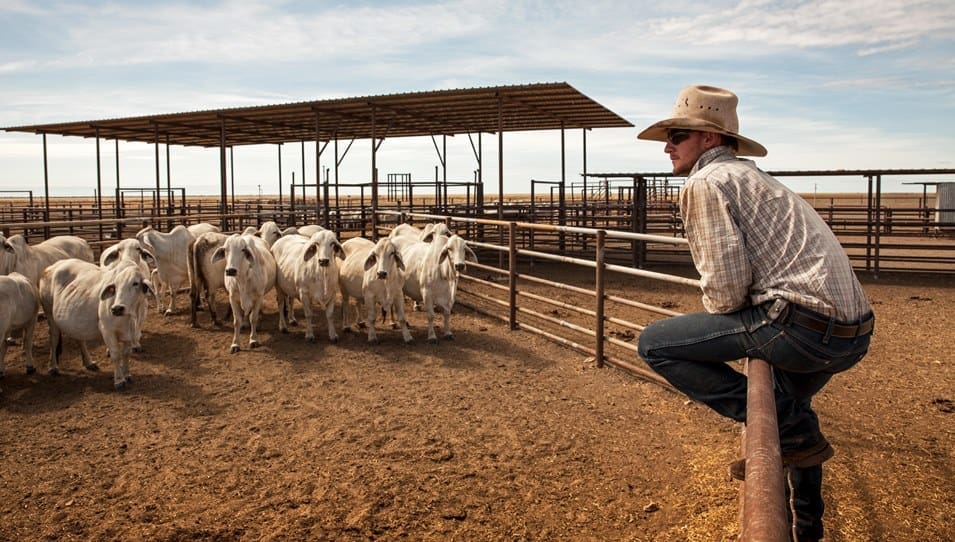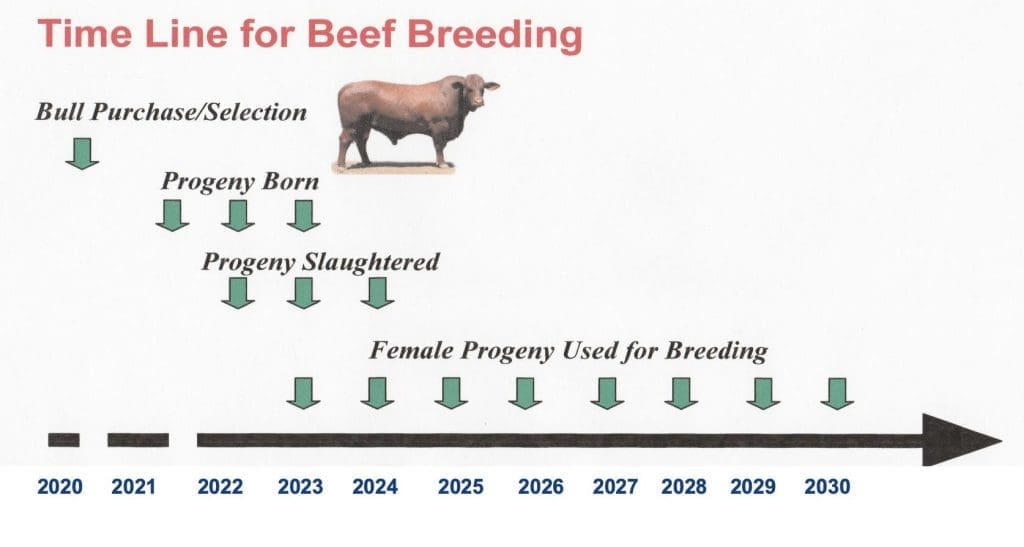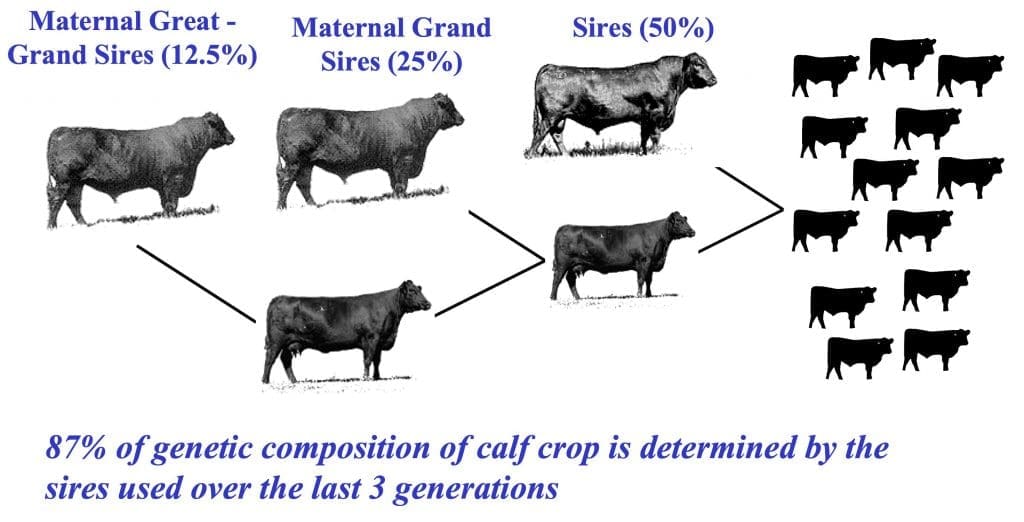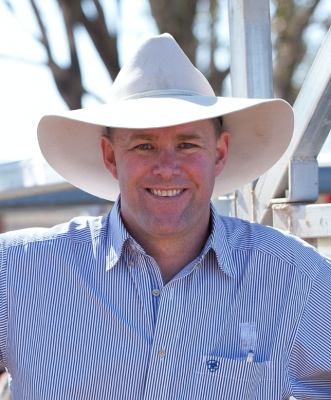
THE timeline for breeding cattle is not a short one. Sire decisions have far reaching ramifications across breeding herds.
While many producers this year are thinking about next season’s calves, and choosing their purchases on traits for that generation, it is important to spend some time looking at what’s going in the herd as well as looking ahead to where these choices may direct a program in the longer term.
It’s worth taking a moment to consider the simple breeding timeline that comes into place when a bull is introduced to a breeding herd.
In the case of bulls purchased this year, the timeline of impact stretches over the next 10 years.

The challenge with this impact is, what happens within the herd as a result of new genetics. Once a bull’s genetics enter a herd, there is little scope for producers to change the outcome of what happens to progeny.
One of the most significant examples of this impact is in the area of herd fertility. Fertility is certainly strongly influenced by nutrition and management decisions such as length and time of joining. The most critical management decision is to remove non-pregnant females from the herd.
In the example of a bull that possesses genetics that reduce herd fertility, such as longer days to calving, increased gestation length, heavier birth weights or greater calving difficulties, it is fair to say that this is an impact that will have significant productive and economic impacts on a business for a long time.
However it is not only the direct influence of a sire on a herd that needs to be considered. The females that make up the herd are the result of past breeding decisions and genetic influences.

The last three generations of sires have an overwhelming impact on the genetics of the calves that will be born in 2021. In practical terms, this means that producers attempting to change direction, correct issues or improve on their current performance need to remember that these changes will take more than one generation to occur.
Of course, highly heritable traits will often be observed in the first generation. However, to change a whole herd takes time.
Given this, the timeframe for change requires producers to be more realistic about their breeding objectives and more focussed on the traits that are of economic importance within their own herd. Breeding objectives should reflect the environment of operation and the compliance progeny have with target markets.
It’s also important that current herd performance is objectively assessed. Is current herd performance a result of poor genetic choices over several generations? Or, is it the result of management decisions that prevent or compromise genetic potential within the herd?
There are many times when genetics have under-performed as a result of limitations placed on the system through nutritional restriction, poor timing for major events such as joining or weaning or the choice of markets that don’t suit the cattle.
The value of genetic improvement is it offers permanent and cumulative changes within a population. Placing a timeline around these changes offers a better insight into the effect sires will have in next year’s calves and in calves that will be born in subsequent years.
Producers who are able to look objectively at their management strategies and determine the changes that have happened over the last three generations are in a better position to make sire decisions that can complement or start to correct issues within a herd.
In the case of producers looking to lift fertility levels, the integration of focussed management strategies such as fixed joining periods, pregnancy testing or annual bull breeding soundness can have an immediate impact on a herd.
However, the value of these activities can be enhanced through targeted genetic selection to capitalise on the opportunity to introduce traits that can be spread over a herd across several years.
 Alastair Rayner is the Principal of RaynerAg, an agricultural advisory service based in NSW. He regularly attends bull sales to support client purchases and undertakes pre sale selections and classifications. He can be contacted here or through his website www.raynerag.com.au
Alastair Rayner is the Principal of RaynerAg, an agricultural advisory service based in NSW. He regularly attends bull sales to support client purchases and undertakes pre sale selections and classifications. He can be contacted here or through his website www.raynerag.com.au
